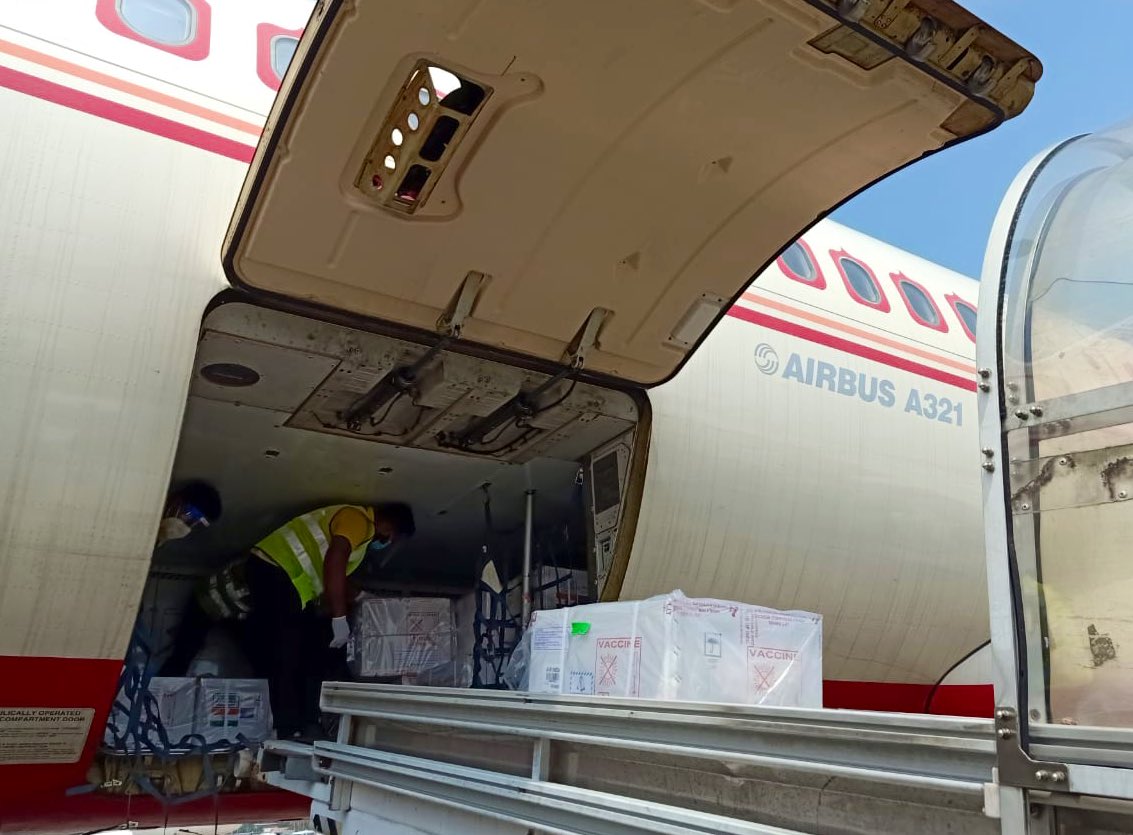
India's shipment of vaccines arrive in Sri Lanka
China and India have agreed to donate COVID-19 vaccines to Sri Lanka, with Chinese officials releasing a statement on 27 January, promising 300,00 free vaccines and India delivering 500,000 free vaccines to the island on 28 January.
India was the first to donate 500,000 doses of their Oxford-AstraZeneca (also known as COVISHIELD) vaccine, manufactured by the Serum Institute of India. The shipment was delivered by India’s High Commissioner in Colombo, Gopal Baglay, to President Gotabaya Rajapaksa at the Bandaranaike International Airport.
President Rajapaksa, who reportedly requested the vaccines from PM Narendra Modi, went to twitter to thank PM Modi, stating;
Received 500,000 #COVID?19 vaccines provided by #peopleofindia at #BIA today(28).
— Gotabaya Rajapaksa (@GotabayaR) January 28, 2021
Thank you! PM Shri @narendramodi & #peopleofindia for the generosity shown towards #PeopleofSriLanka at this time in need. pic.twitter.com/yniKBWNeWC
India’s donation will cover 250,000 people with 150,000 health workers and 115,000 selected military and police troops being the first to be vaccinated, as stated by Sri Lankan officials.
The Government of India donated the vaccines under their “Vaccine Maitri” campaign, in which India donated vaccines to Nepal, Bangladesh, Myanmar, Bhutan, Maldives, Mauritius and Seychelles.
Meanwhile, the Chinese Embassy in Sri Lanka released a statement stating, “responding to recent requests by the Sri Lankan government, China has decided to donate 300K coronavirus vaccine doses to Sri Lanka.”
The statement outlines China’s aims to hand over their Sinopharm vaccine by mid-February, “after the due procedures in both ends are completed.”
Furthermore, the statement went on to “reiterate China’s commitment to jointly build a community of shared future for mankind” with Sri Lanka.
Read the Chinese Embassy in Sri Lanka's statement here.
Regardless of President Rajapaksa’s pleas with China and India to donate vaccines, which outline the apparent lack of vaccines on the island, Sri Lanka remains open to international travel.
Sri Lanka’s airports reopened as of 21 January 2021, regardless of the steady rise of COVID-19 cases on the island since 9 January 2021.

